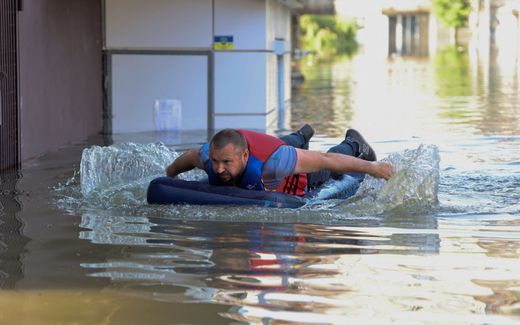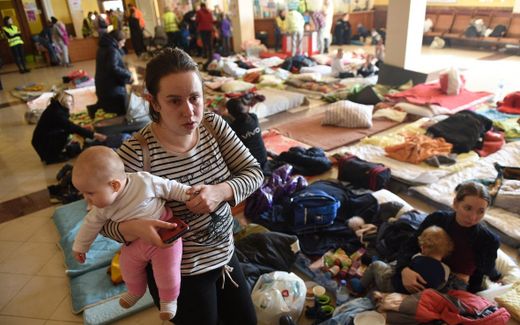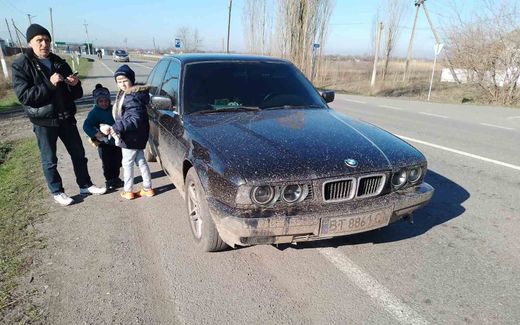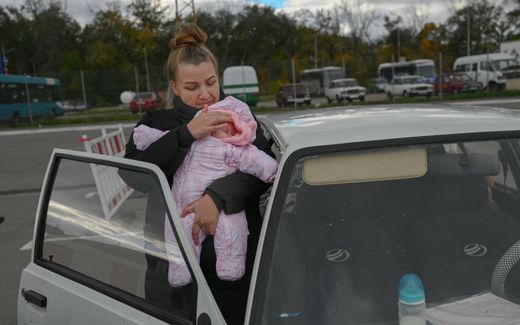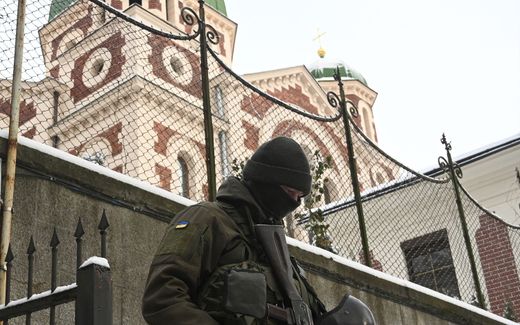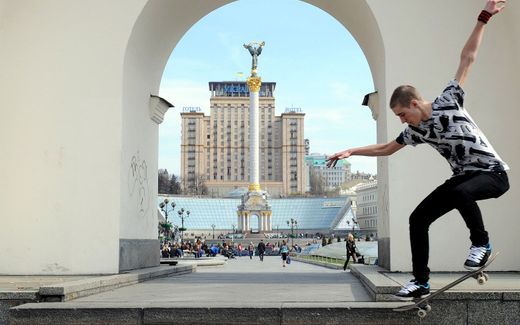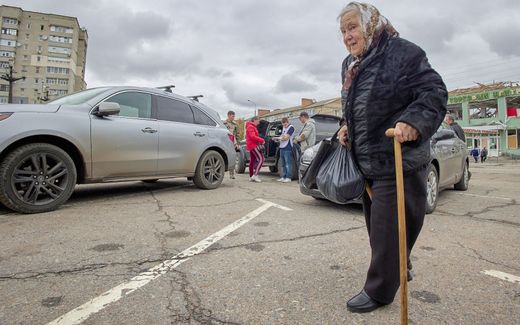Column from Ukraine: Who will rebuild Ukraine after the war?
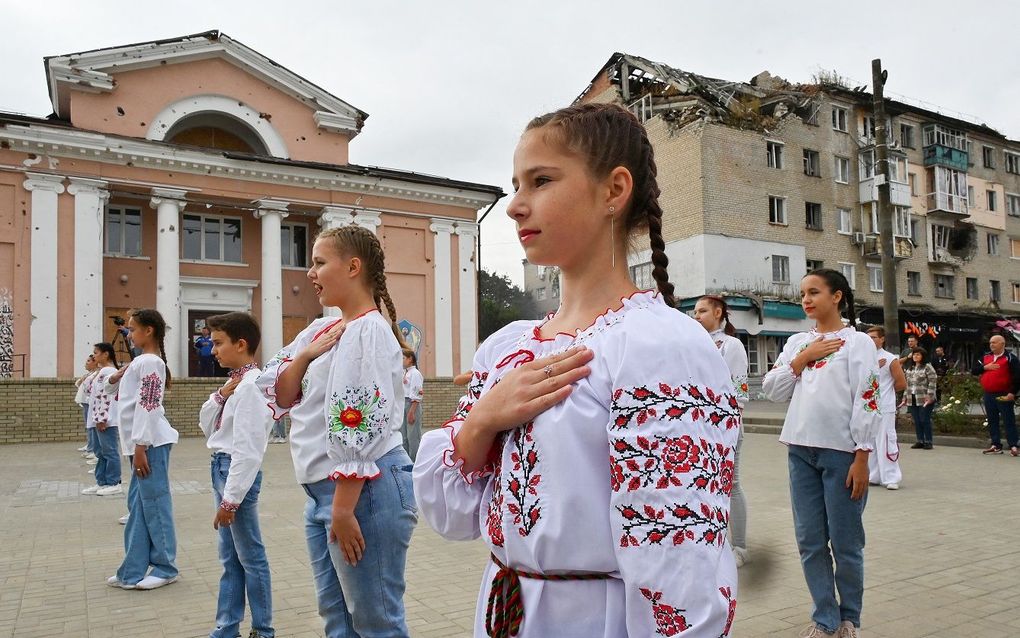
Children perform in the center of the town of Izyum, Kharkiv region during the first anniversary of liberation of the small town in eastern Ukraine. Photo AFP, Sergey Bobok
Christian Life
In Ukraine children are needed more than ever, columnist Oleksii Blyzniuk writes. Because who will restore Ukraine otherwise when the war ends?
In my last article, I already mentioned some problems that Ukraine will face after the war. In particular, I mentioned the disappointing forecasts for the demining of vast Ukrainian territories, which will take tens, if not hundreds of years.
In this article, we will continue to talk about the challenges that await us in the future, which are even more serious than the issue of demining. According to experts, Ukraine has an extremely threatening demographic situation. The country is home to 29 million people, of which only 9 million work. Therefore, the main question is: will there be anyone to raise the economy in the post-war period?
Too few workers
Recently, Ukrainian media space were stirred up by the news about the results of a study by the Ukrainian Institute for the Future (UIF) on the population in Ukraine and the prospects for economic recovery by the existing workforce. According to sociologists, about 8.6 million Ukrainians have gone abroad and not returned to Ukraine since the beginning of Russia's full-scale invasion. And as of May 2023, the permanent population of Ukraine, according to UIF estimates, is only 29 million people (compared to 42 million before the war, and 52 million after the collapse of the Soviet Union).
Sociologists explain that at the moment, only 9.1-9.5 million people work in Ukraine, and if you subtract state employees, there are about 6-7 million people left. They are the main pulling force that supports the others – 22-23 million people, including pensioners, children, students, the unemployed, dependents, public sector employees, etc.
Low birth rate
Added to this is the low birth rate in the country. Experts point out that the total fertility rate has already fallen below 1, while it must be more than 2 for the population to grow. If nothing changes, there will be twice as many pensioners in Ukraine as there are working people in the next few years. That is why the issue of demography should be on the agenda among politicians as one of the highest priorities that need urgent measures.
In the early 90s, the population of Ukraine was at 52 million. But a lot has changed since then. The new data is, of course, disappointing, although quite understandable for a country in which a brutal war has been going on for more than a year and a half. Many people go abroad in search of safety, and other countries, for the most part, hospitably welcome our refugees and provide the necessary assistance.
And the longer the war goes on, the more fears are growing that many refugees will settle in wealthy Europe, England and the United States and will not return to Ukraine. Many families who went abroad at the beginning of the war and started a new life in other countries have already adapted quite well – children go to school, and parents have found jobs. Therefore, the issue of return for them is still quite vague and unrealistic.
Expectations
How many Ukrainians can we still expect to return home? Experts of the Institute of Demography and Social Studies note that according to the experience of the Balkan wars, after the onset of peace, a third of refugees return home, but in our case, we can count on a larger share.
Firstly, when Ukrainian refugees are faced with a choice between refugee status or temporary asylum status, they mostly choose the latter, because they want to be able to stay abroad and then return. Secondly, according to surveys conducted during border crossings, Ukrainian women also stated their intentions to return. In the beginning, there were about 90 per cent of them, now the figure is slightly smaller, but experts still expect 50-60 per cent of people to return.
However, contrary to such optimistic forecasts, it is also necessary to understand that when Ukraine becomes a member of the EU, we will get a free labour market with European countries. That means that the issue of labour market competitiveness will again become acute. It will largely depend on the level of wages. For example, in neighbouring Poland, where many Ukrainians work, the average salary is more than 1,000 euros, which cannot be compared with the current salary level in Ukraine. Therefore, this should change, so that people are not only motivated by a sense of patriotism but also by a decent reward for work.
Church
The above-mentioned problems directly affect the Ukrainian churches as well. At the beginning of the war, approximately 30-50 per cent of church members and parishioners of our denominations (Reformed and Presbyterian) went abroad. In churches where older people predominated, of course, this figure was smaller, while in churches with a dominant younger generation, this figure was even higher.
Given the fact that historically, Reformed and Presbyterian churches in Ukraine are not very large (usually 30-100 members), this trend is actually a serious problem for our denominations. For example, in one of the Presbyterian churches that held services on the premises of our seminary, the services stopped altogether for a while after the start of the full-scale invasion. The reason was that a large number of families left, and many of the young men who remained were drafted into the army. At the same time, the situation with the return is absolutely identical to the one described above: the people who have already settled abroad and adapted to new living conditions do not plan to return to Ukraine, at least until the end of the war.
Thank God that despite such negative trends, our churches continue to hold various services, and it is not uncommon for the number of people to return to pre-war levels due to new converts among the refugees whom the churches actively help. However, these are still new people in search of a new life, who do not yet fully know where they will live and what they will do. Given that the war is far from over, for most converts, our churches (especially in the central regions) still serve as a temporary hub, on the way of further movement to the western Ukraine or abroad.
Action
So, at the moment, the demographic crisis in Ukraine is only getting worse. The young working population is becoming smaller and smaller. Due to the war, there is an increase in mortality and a decrease in the birth rate, and migration is added to this. Be that as it may, today, we clearly understand that we need our people who will restore the state and give birth to new generations. Therefore, today, in parallel with titanic efforts in the fight against the enemy, our government should do everything to make Ukrainians want to return home after the war (or even earlier).
So far, unfortunately, we are far from this. Therefore, what we can and should do, as Christians and as conscious citizens of our society, is, first, to continue to pray for the speedy victory over the enemy; secondly, to talk about these problems and bring them up for wider public discussion. Otherwise, very soon there will be no one to restore Ukraine after the war.
Related Articles


